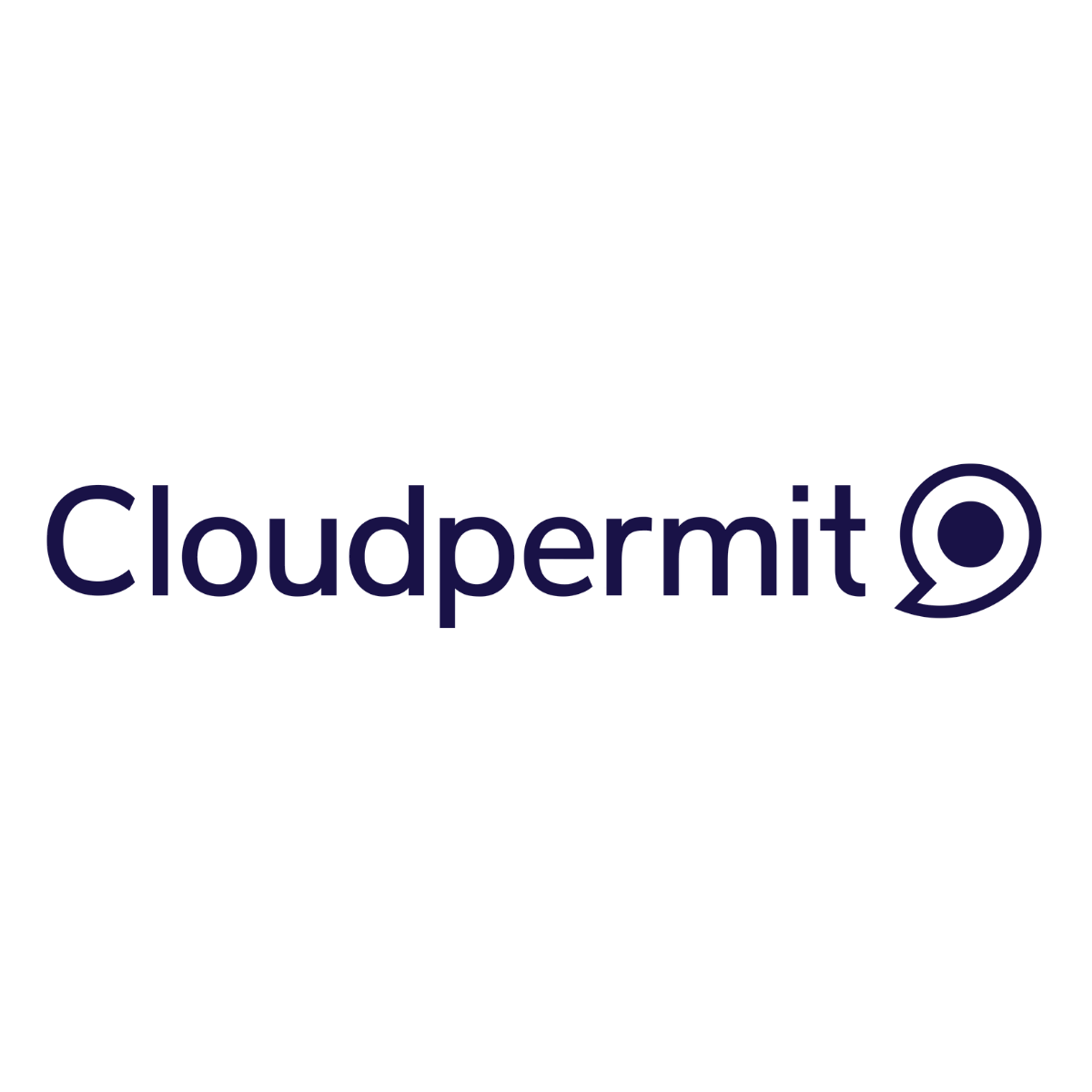Yes, most permit software nowadays is built to work across numerous devices and platforms. This means that the software has the same functionality and capabilities whether used on a desktop computer, laptop, tablet, or smartphone. Furthermore, many permit software businesses provide web-based or cloud-based solutions, which allow customers to use the program from any internet-connected device. This provides customers with ease and flexibility, allowing them to manage permits and compliance requirements while on the road.
List of Best Permit Software
Granicus is a top-notch cloud-based platform, designed to enable government agencies to enhance communication, engagement, and efficiency. With a proven track record of serving more than 6,000 organizations, Granicus is committed to modernizing publi...Read More Granicus
Safetymint, the premier safety management software designed to revolutionize your organizations safety protocols. Our cutting-edge cloud-based platform streamlines and enhances safety procedures for businesses of all sizes, freeing up time to priorit...Read More Safetymint
Asite is a software that transforms project management with its advanced features for improved visibility and organized control. With a strong user base of 62,000 companies, it streamlines operations, boosts efficiency, and facilitates seamless teamw...Read More Asite
QHSEalert - Safety Permit to Work, the efficient cloud-based solution for creating, reviewing, and approving safety permits. With its quick permit regeneration feature, valuable time is saved. Easily share permits through email, text, or WhatsApp and...Read More QHSEalert - Safety Permit to Work
CityView Suite is a software solution for municipalities seeking to streamline their operations, enhance citizen engagement, and boost efficiency. This comprehensive suite includes features such as online permitting, inspections, and electronic plan...Read More CityView Suite
CityWorks is a code compliance software that has revolutionized the management of public assets. It offers real-time tracking of vehicles, employee hours, and past records, bringing unmatched efficiency to asset management. The softwares advanced map...Read More CityWorks
IAMTech Suite - a highly reliable and all-inclusive software suite designed for industrial use. Trusted by leading companies worldwide, this powerful suite offers advanced tools for maintenance planning, shutdown management, and real-time data captur...Read More IAMTech Suite
CityGrows solution for local government permitting. Our digital platform eliminates the hassle of traditional paper and PDF forms, offering streamlined processes and increased efficiency. With advanced features like digital signatures, online payment...Read More CityGrows
OpenGov is a cloud-based software designed to enhance efficiency in local government operations. With its user-friendly features, agencies can easily manage tasks like budgeting, asset management, and procurement. By streamlining processes, OpenGov e...Read More OpenGov
EnerGov, the all-inclusive land record management system that streamlines your land management processes. Our intuitive software offers a self-service platform for easy daily operations, including online registration and scheduling of property inspec...Read More EnerGov
GovPilotis a e-government management solution designed to revolutionize insight, efficiency, and constituent engagement. Utilizing GovPilots advanced workflow automation engine, government agencies can simplify and streamline tedious tasks and commun...Read More GovPilot
AMANDA is a case management solution designed to enhance your workflow. With advanced automation, real-time data monitoring, and intuitive interfaces, AMANDA streamlines processes and improves productivity. Its customizable workflows, extensive repor...Read More AMANDA
a software, the Permit To Work System. Designed with safety and compliance in mind, A system streamlines work authorization processes for seamless operations. Real-time tracking, customizable workflows, and comprehensive reporting are just a few of i...Read More Permit To Work System
Elements XS3 government software solution designed for public works departments. This advanced tool streamlines operations with its intuitive interface and advanced GIS capabilities. With Elements XS3, government agencies can make informed decisions...Read More Elements XS3
eFACiLiTY® Risks and Work Permits Management Software - the ideal solution for facility managers to maintain a secure workplace for their staff. This software simplifies the process of requesting and authorizing work permits, reduc...Read More eFACiLiTY� Risks and Work Permits
Cloudpermit solution for efficient and digitized community development. Streamline your agencys operations with this all-in-one software that simplifies managing building permits, business licenses, zoning and planning, and code enforcement processes...Read More Cloudpermit
CityReporter solution for planning and conducting inspections seamlessly. Our software allows for easy creation of personalized reports, which can be utilized immediately with our complimentary training and consultation services. Enhanced with the ab...Read More CityReporter
iWorQ, a leading cloud-based solution for government agencies to manage their code enforcement tasks. With its advanced features, iWorQ simplifies the management of public works departments, making it more efficient and organized. Additionally, our s...Read More iWorQ
Accela, a leading cloud-based solution, is tailored for government agencies of every size. With a proven track record of delivering productivity and enhanced engagement software, Accela is dedicated to empowering government organizations to reach the...Read More Accela
Learn More About Permit Software
- What Is Permit Software?
- What Are The Recent Trends In Permit Software?
- Benefits Of Using Permit Software
- Important Factors To Consider While Purchasing Permit Software?
- What Are The Key Features To Look For In Permit Software?
- Why Do Businesses Need Permit Software?
- How Much Time Is Required To Implement Permit Software?
- What Is The Level Of Customization Available In Permit Software?
- Which Industries Can Benefit The Most From Permit Software?
- Conclusion
What Is Permit Software?
Permit software is a computer solution that streamlines the process of getting permits for construction, renovation, and other projects. It is a digital solution that provides a consolidated platform for organizing permit applications, tracking progress, and engaging with key stakeholders such as government agencies, contractors, and project owners.
This software is specifically developed to assist firms and individuals working in the construction sector in efficiently managing permit-related tasks, saving them time and resources. It eliminates the need for human documentation and automates several processes, making the permit application and approval process easier and more efficient. One of the most important characteristics of permit software is the ability to deliver real-time updates and status tracking for permit applications.
Users can be informed about the status of their applications and take appropriate action if there are any delays or concerns. Furthermore, the software includes a safe and well-organized database for keeping all permit-related papers and information, making it readily available for future reference. Furthermore, permit software includes functions like compliance management, fee computation, and inspection scheduling, giving it a complete solution for all permit-related duties.
It also includes customisable options to meet the unique demands and requirements of various types of projects. Investing in permit software can provide various benefits to businesses, including increased productivity, reduced risk of errors, and improved overall project management processes. It can also assist prevent costly delays and penalties caused by incomplete or incorrect permission applications.
What Are The Recent Trends In Permit Software?
Permit software has become an indispensable tool for organizations and enterprises of all kinds, streamlining and simplifying the process of getting permissions and licenses. Permit software features and capacities evolve in tandem with technological advancements.
Buyers should be aware of the following recent trends in permit software:
1. Automation And Integration: One of the most important trends in permit software is the expansion of automation and integration capabilities. This means that the program may now automate a variety of formerly manual operations, such as form completion, application progress tracking, and sending reminders for permit renewals. Furthermore, permit software may now be integrated with other systems, making it easier to share data and streamline processes.
2. Mobile Accessibility: With the rise of remote work and the demand for on-the-go access, permit software vendors have begun to offer mobile applications. Users can now access the program via their smartphones or tablets, making permit management easier and more comfortable from anywhere.
3. Customization And Personalization: Another development in permit software is the ability to adapt and personalize the software to meet the unique requirements of a business or organization. This implies that customers may select the features they require and personalize the software to their own workflow, making it more efficient and user-friendly.
4. Real-Time Collaboration: Many modern software packages now have real-time collaboration tools, which let numerous people to work on the same application or project at the same time. This eliminates the need for back-and-forth communication, accelerating the permit application procedure.
5. Data Analytics: Permit software now includes advanced data analytics features that let users to evaluate application data, measure progress, and identify areas for improvement. This can help organizations and enterprises make data-driven decisions and streamline their permit procedures even further.
6. Cloud-Based Solutions: Cloud-based permit software has been increasingly popular in recent years. This means that the software is housed in the cloud, and users can access it from any device with an internet connection. It eliminates the need for on-site servers and facilitates remote access and collaboration.
7. Virtual Inspections: With the ongoing epidemic, many permit software providers have developed virtual inspection features that allow inspections to be completed remotely. This improves the process's safety and efficiency while assuring regulatory compliance.
Benefits Of Using Permit Software
Permit software is an essential tool for any individual or business dealing with permits and licenses. It simplifies the typically arduous and time-consuming process of getting and managing permits, saving significant time and resources.
Here are some significant advantages of using permit software, making it a must-have for all permit-related tasks:
1. Centralized Permission Management: Permit software offers a centralized platform for handling all parts of the permission procedure. This implies that all permits, licenses, and related information can be conveniently accessible and managed in a single location, reducing the need for many spreadsheets, paperwork, and manual tracking.
2. Time And Cost Savings: By automating a variety of permit-related operations, permit software can considerably reduce the time and effort required to obtain and manage permits. This enables businesses to allocate their valuable resources to other critical areas of their operations, resulting in enhanced productivity and cost savings.
3. Compliance Management: Adherence to regulations and guidelines is critical when it comes to permits and licenses. Permit software automates compliance checks, ensuring that all required permits and licenses are valid and up to date. It also sends timely reminders about renewals and expirations, preventing any compliance difficulties and penalties.
4. Improved Communication: Permit software facilitates efficient communication among the various players engaged in the permit process. It enables easy communication among numerous departments, contractors, and government organizations, resulting in efficient and quick permission processing.
5. Real-Time Updates: Permit software allows customers to receive real-time updates on the status of permit applications, approvals, and rejections. This reduces delays and enables for better planning and scheduling, particularly for jobs that require getting permits.
6. Streamlined Workflows: Permit software includes pre-configured workflows to streamline the permit application, review, and approval processes. This reduces the need for manual intervention, lowering the risk of errors and delays.
7. Customizable And Scalable: Each firm has distinct permission requirements, and permit software provides customization possibilities to fit the system to their individual demands. Furthermore, if a company grows, the software may be quickly scaled to meet the growing permit volume.
Important Factors To Consider While Purchasing Permit Software?
When it comes to acquiring permit software, there are various variables to consider in order to make an informed decision. As a professional content writer, I've developed a list of crucial considerations to consider while choosing permit software.
1. Features And Functionality: The permit software's features and functionality are the most important factors to examine. It is critical to identify your individual requirements and then compare them to the functionality provided by the software. Some important features to look for are customizable templates, automated workflows, document management, and reporting capabilities.
2. User-Friendliness: The next consideration is the software's usability. Complex and difficult-to-use software can be frustrating and time-consuming. Look for software with an easy-to-use interface and minimal training to get started. This ensures that your team can quickly learn to the program and begin utilizing it effectively.
3. Integration: Another crucial consideration is the software's integration capabilities. It should be able to work easily with your current systems, such as document management, CRM, or accounting software. This saves time and effort when manually transferring data between platforms.
4. Security: When dealing with sensitive permit data, security should be the first priority. It is critical that the software you purchase has strong security mechanisms in place to protect your data. Encryption, data backup, and user access controls are all features that can help protect the security of your information.
5. Support And Training: It is critical to have a dependable support structure in place while utilizing any software. Look for permit software that provides extensive assistance and training, such as online tutorials, user guides, and a dedicated support team. This will ensure that you can get assistance whenever you need it and make the best use of the software.
6. Scalability And Flexibility: Your permit software should be able to develop alongside your organization. It is critical to select software that is scalable and versatile, allowing you to add and remove features as necessary. This prevents you from needing to invest in new software every time your company grows.
7. Cost: Finally, the cost of the software should be considered. Look for software that meets your budget while also providing all of the necessary features. Consider both the initial cost and any ongoing expenditures, such as maintenance or support.
What Are The Key Features To Look For In Permit Software?
Permit software is a vital tool for organizations and enterprises who need to receive permits from government bodies. It automates the typically complex and time-consuming process of permit management, saving users time and resources.
When looking for permit software, consider the following vital aspects to make an informed decision:
1. Customizable Permit Kinds: Each industry has its own set of permits, therefore you should choose software that can manage all of the permit kinds required for your firm. Look for a service that provides adjustable permit kinds to meet your specific requirements.
2. Automated Workflows: One of the key benefits of permit software is the automation of processes, which improves the process efficiency. Look for a solution that can automate the process of creating, filing, and tracking permits, as well as sending renewal and expiration reminders.
3. Centralized Database: Effective permit management requires a comprehensive, centralized database. Look for software that can keep all permit-related data in a one area, making it easy to access and monitor permit status.
4. User-Friendly Interface: The program should have an intuitive interface that is simple to navigate and utilize. This saves time and shortens the learning curve for new users.
5. Compliance Management: Permit regulations and requirements change on a regular basis, and compliance is critical to avoid penalties or delays. Look for a solution that has compliance management tools to ensure compliance with all permit regulations.
6. Integration With Other Systems: To simplify the permit management process, seek for software that can work with other systems like GIS, accounting, and project management. This prevents duplicate data entering and ensures a smooth workflow.
7. Reporting And Analytics: Detailed reporting and analytics are essential for assessing permit performance and identifying areas for improvement. Seek out a service that provides customizable reports and dashboards to acquire insights on permit data.
8. Mobile Access: With the advent of remote work and the demand for real-time updates, it is critical to have access to permit information while on the road. Look for software that includes a mobile app or a web-based interface for convenient access from anywhere.
Why Do Businesses Need Permit Software?
Businesses of all kinds, from small start-ups to major enterprises, must obtain a variety of permits and licenses to operate legally. These permits ensure that businesses follow local, state, and federal standards while protecting the safety and well-being of their customers, employees, and the environment. Permit software can help with the time-consuming and difficult process of obtaining and managing permissions.
Permit software is a digital solution for automating and streamlining the permit administration process. It enables businesses to simply apply for, track, and renew licenses, as well as keep up with any new requirements or modifications. Aside from easing the licensing procedure, permit software offers various other advantages to organizations. For starters, permit software saves firms money on fines and penalties by ensuring they consistently follow rules.
The software may provide warnings and reminders for permit renewals, lowering the chance of permits expiring and incurring penalties. Furthermore, permit software enables organizations to consolidate all of their permissions and documentation in a single secure area. This not only saves time and effort in looking for physical copies of permits, but it also lowers the possibility of losing vital documents.
In addition, permit software frequently includes a reporting capability that allows firms to generate information on their permit history and status. This helps organizations stay organized and prepared for potential regulatory audits. Another benefit of permit software is that it improves internal communication and teamwork.
Different departments and teams can monitor and track permits using the same system, which reduces confusion and ensures everyone is on the same page. Finally, permit software can help businesses increase their overall efficiency and production. Businesses can save time and resources by automating and streamlining the permit process, allowing them to focus on other critical aspects of their operations.
How Much Time Is Required To Implement Permit Software?
The method of implementing permit software varies depending on the program and your organization's demands. On average, it can take between a few weeks and several months to fully integrate and deploy the program. The first step in installing permit software is to examine your organization's existing processes and establish which software capabilities and functionalities are required for your business.
This review step can last a few days or weeks, depending on the complexity of your business and the number of parties engaged. After you've determined your requirements, the following step is to choose a software vendor and negotiate a contract. This can take several weeks because it requires analyzing various possibilities, negotiating terms and pricing, and obtaining relevant clearances.
After signing the contract, the software vendor will normally set up the appropriate infrastructure and configure the software to your needs. This process may take several weeks, depending on the size of your firm and the complexity of the program. Once the program is installed, there will be a testing process to confirm that everything works properly and to make any necessary changes.
This can take anything from a few days to a week, depending on the amount of users and the software's capabilities. Finally, there will be a training phase to familiarize personnel with the software and its functions. This can take anywhere from a few days to a week, depending on the level of training needed. Overall, permit software implementation can take 4-8 weeks, although it may take longer for more complicated applications and larger enterprises. It is critical to devote sufficient time and money to installation in order to ensure a smooth transition and optimize the software's benefits.
What Is The Level Of Customization Available In Permit Software?
Permit software is an invaluable resource for any business or organization that requires permissions for its initiatives or operations. One key factor to consider when selecting permit software is the level of flexibility available. This refers to the capacity to customize the software to meet your individual demands and specifications. Different permit software suppliers offer varying degrees of customisation.
Some may have restricted alternatives, but others provide a great level of flexibility to fulfill their clients' specific demands. This can include custom fields, workflows, and user permissions. Custom fields enable you to provide specific information or data points pertinent to your organization or industry. This may include unique identities, project data, or permit-specific criteria.
With the ability to build custom fields, you can ensure that your permit software catches all required information and eliminates the need for human data entry. Workflows are another part of customisation that should be considered. Workflows specify the order of steps and approvals needed to secure a permit. Customizable workflows enable you to tailor the permit process to meet your individual needs, making it more effective and streamlined.
User permissions are also vital to consider. Permit software with adjustable user permissions gives you control over who has access to specific system functionalities or information. This is especially crucial for larger businesses with several departments or teams, as it ensures that only authorized workers have access to sensitive data. The level of customisation offered in permit software has a significant impact on its usability and performance for your firm.
When comparing the customisation options provided by various providers, keep your individual demands and requirements in mind. A software with a high degree of customisation can be tailored to your specific requirements, saving you time and increasing overall efficiency. As a result, it is critical to carefully consider the level of customization offered before deciding which permit software to invest in. This ensures that you select the finest solution for your business needs while also streamlining the permitting procedure.
Which Industries Can Benefit The Most From Permit Software?
Permit software is a strong tool that may help firms streamline permit management operations and guarantee regulatory compliance across a wide range of sectors. However, certain industries may profit more from this software than others.
We'll look at the industries that can most benefit from employing permit software.
1. Construction Business: The construction business is one of the most severely regulated sectors, requiring multiple permits and approvals at different phases of a project. Permit software may greatly assist construction organizations by automating the process of getting permissions and tracking their progress. It also offers a unified platform for organizing and maintaining permission paperwork, which reduces the risk of noncompliance and project delays.
2. Oil And Gas Business: The oil and gas business is heavily regulated, with stringent environmental and safety standards. Permit software can help in obtaining the appropriate permissions and approvals for drilling, production, and transportation activities. It can also help manage regulatory compliance and track permits for routine maintenance and inspections.
3. Manufacturing Industry: Obtaining permissions for new facilities or expansions in the manufacturing industry can be a lengthy and complicated procedure. Permit software can make this process easier by creating the required paperwork and forms, maintaining their status, and assuring timely approvals. It can also help manage environmental permit and reporting needs.
4. Transportation Industry: Transportation industries, such as airlines and trucking companies, must get a variety of permissions and certifications to operate. Permit software can provide a single platform for managing and tracking permits, lowering the likelihood of regulatory infractions and fines. It can also help you get permits for additional routes or modifications in operations.
5. Environmental Consulting Industry: Environmental consulting firms help businesses comply with environmental standards. Permit software can help expedite procedures by automating permit applications, managing deadlines, and creating client reports. It can also serve as a forum for communication and collaboration with regulatory agencies.
Conclusion
Finally, selecting the appropriate permit software for your organization can dramatically increase productivity, accuracy, and compliance. As seen in this buyer's guide, there are numerous aspects to consider before making a purchase, including pricing, features, and customer service. Before making a purchase, conduct thorough research and assess different possibilities to ensure that the software fulfills your specific requirements.
Reading reviews, requesting demos, and speaking with current users can all provide helpful insights about the software's functionality and usability. Furthermore, it is critical to evaluate the long-term implications of investing in permit software. As your company expands and evolves, the software should be able to adapt and scale accordingly. Furthermore, selecting a reputable and experienced service can provide piece of mind while ensuring ongoing support and updates.
In conclusion, permit software can help you streamline your permit management process and save time and money. By carefully considering your business objectives and weighing your options, you can make an informed decision and select the best software for your specific needs. Remember to prioritize flexibility, dependability, and customer service to get the most out of your investment.
Permit Software FAQ's
Can Permit Software Be Accessed Across Multiple Devices And Platforms?
Is Permit Software Future-Proof And Adaptable To Emerging Technologies Like AI, Blockchain Or IoT?
Yes, permit software is future-proof and can adapt to new technology. It can work with AI, blockchain, and IoT to speed permit applications, improve data accuracy, and boost productivity. This ensures that the program is always relevant and up to date with new technological developments. With the ongoing growth of technology, permit software will continue to evolve and adapt to meet the future permit management needs.
Is There A Free Trial Offered To Assess Permit Software Before Committing?
Yes, many permit software suppliers provide a free trial period so that interested users can evaluate the product before making a commitment. This allows you to evaluate the features, usability, and compatibility with your business requirements. Make the most of this time by researching various functions and contacting customer service if necessary. This will allow you to make an informed choice about whether the software is a good fit for your organization.
Does Permit Software Offer Data Security Features And Meet Regulatory Compliance Standards?
Yes, most permit software systems include built-in data security measures including encryption and user access control to protect sensitive information. Furthermore, these systems frequently incorporate compliance with applicable legislation, such as HIPAA or GDPR. This ensures that your data is secure and that your firm adheres to all applicable compliance standards. Make sure to question your provider about the unique security and compliance measures included in their permit software.
Can Permit Software Integrate Seamlessly With Existing Tools And Platforms?
Permit software can work easily with existing tools and systems. Most permit software packages can link with popular platforms including CRM systems, accounting software, and project management tools. This provides for a more efficient approach and eliminates the need for human data entering. Additionally, when selecting permit software, be sure to inquire about compatibility with your current products to guarantee a smooth integration process.





















